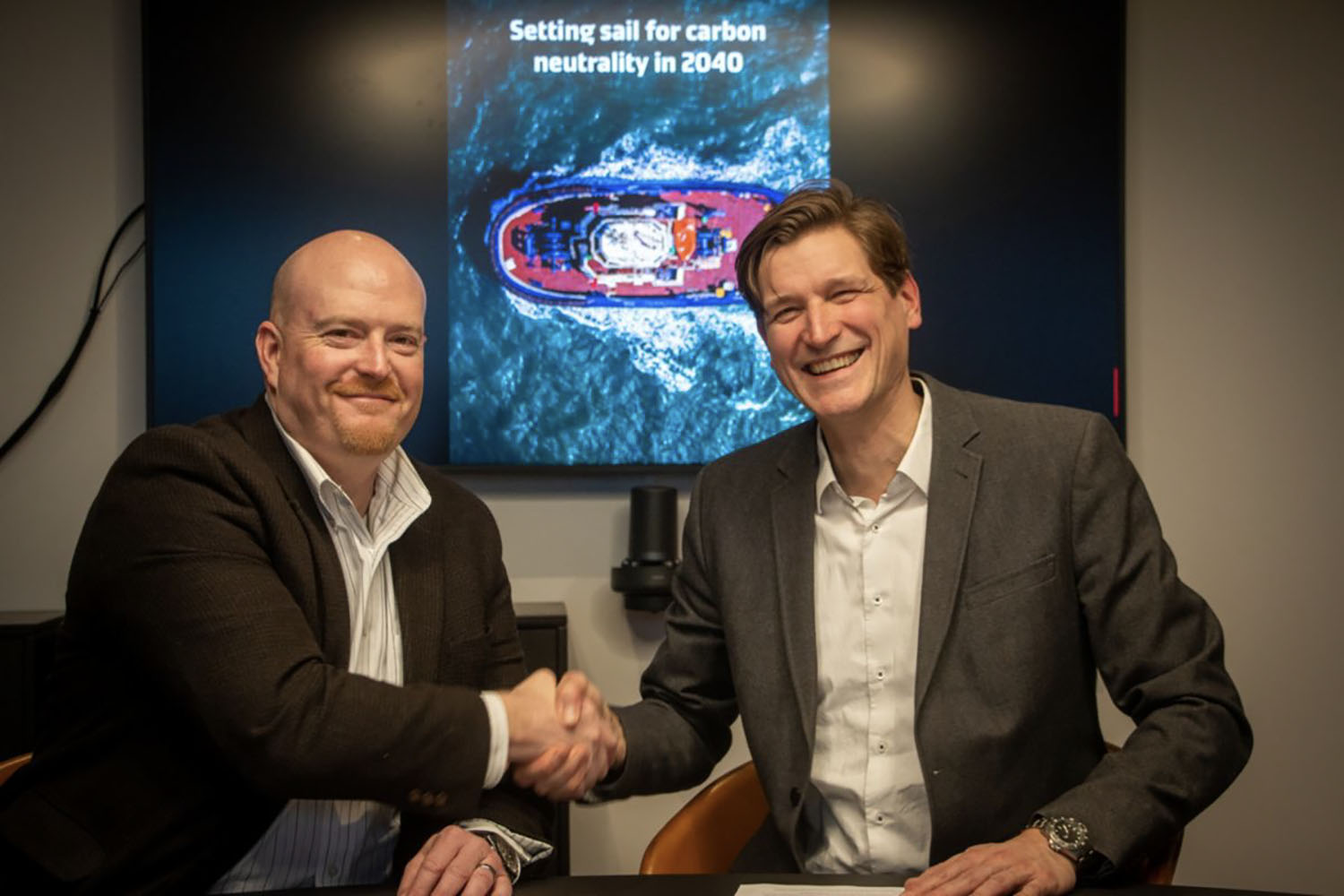Houston-based Caterpillar Marine and Svitzer, a fully-owned subsidiary of A.P. Moller-Maersk that provides towing services around the world, have executed a memorandum of understanding (MOU) aimed at implementing methanol dual-fuel engine solutions throughout Svitzer’s fleet of 440 tugboats.
According to an announcement from the companies, the partnership will allow Svitzer to power new-build vessels with methanol dual-fuel engines from Caterpillar Marine, while also converting its existing Caterpillar-powered tugs to use both diesel and methanol.
Caterpillar Marine previously announced in September 2022 the ability to modify Cat 3500E marine engines to run on methanol as a dual fuel, which offers customers an option for cutting emissions. That ability to use methanol, particularly from renewable energy sources, will help Svitzer meet its decarbonization goals by 2030 and 2040.
“Svitzer has a significant fleet of vessels powered by Cat systems, as well as ambitious decarbonization targets for our future fleet,” said Kasper Karlsen, global chief operating officer for Svitzer. “It is therefore of utmost importance that we join forces with strategic collaborators, such as Caterpillar Marine, to find solutions for both existing and future vessels.”
Svitzer has said it aims to reduce carbon dioxide (CO2) emissions fleet-wide by 50 percent by 2030 and to be carbon neutral by 2040.
“Given the size and complexity of our fleet and the ambitious target we have set of becoming carbon neutral in 2040, it is critical to take a holistic approach to reducing our CO2 emissions,” said Gareth Prowse, head of decarbonization for Svitzer. “While we seek to mature and utilize new technologies, fuel types and operational approaches for new vessels, we also have to find solutions that help reduce the emissions from our existing fleet. The support Caterpillar provides in finding ways of converting our equipment to methanol usage plays a key role in this.”
Andres Perez, global tug segment manager for Caterpillar Marine, said the partnership with Svitzer will have a two-fold benefit.
“We are supporting Svitzer to enable tugs to operate on methanol with diesel-like performance while providing fuel flexibility, which is key to enabling operators to lower their carbon intensity via green methanol as availability increases,” Perez said. “Additionally, we’re taking full advantage of the learnings to provide conversion solutions for the existing fleet. This is a critical aspect to reach the level of methanol adoption that Svitzer seeks to fulfill their goals.”
Brad Johnson, Caterpillar Marine vice president and general manager of marine, said the partnership could have an industrywide impact.
“Many companies within the industry are exploring methods and solutions that can be incorporated today while also determining viable options for the future,” Johnson said. “The collaboration between Caterpillar and Svitzer is an important step toward implementing the solutions that support their decarbonization strategy.”
Caption for photo: Brad Johnson, Caterpillar Marine vice president and general manager of marine, with Kasper Karlsen, global chief operating officer for Svitzer. (Photo courtesy of Caterpillar Marine)



